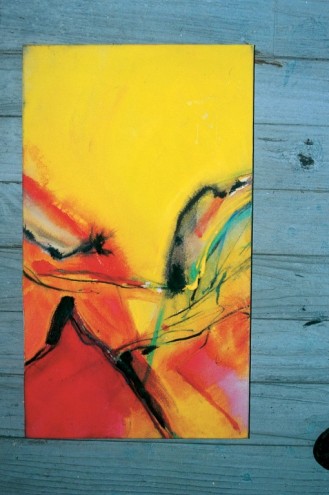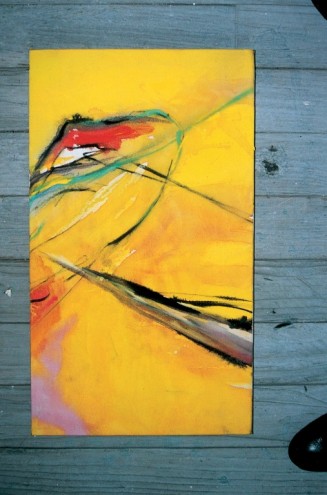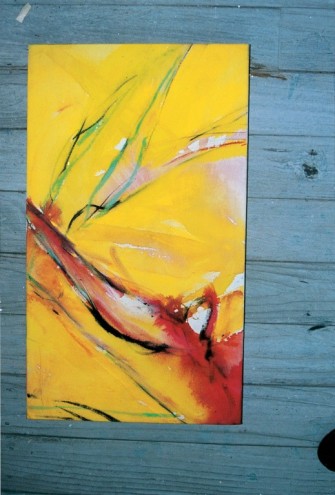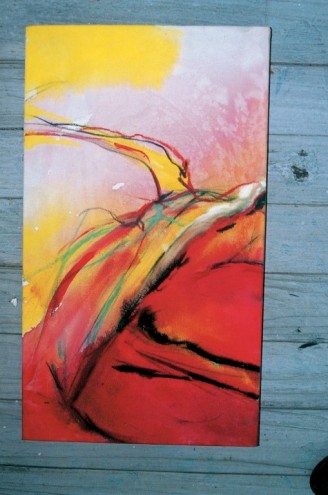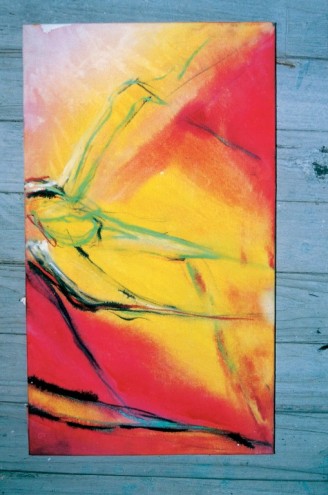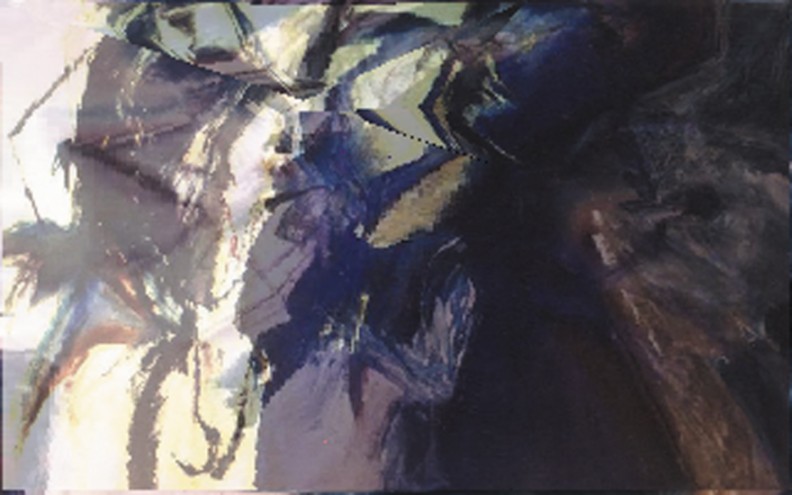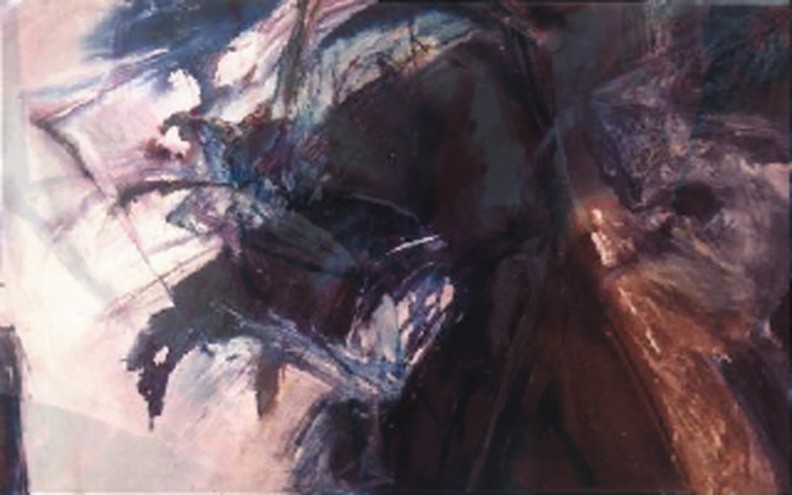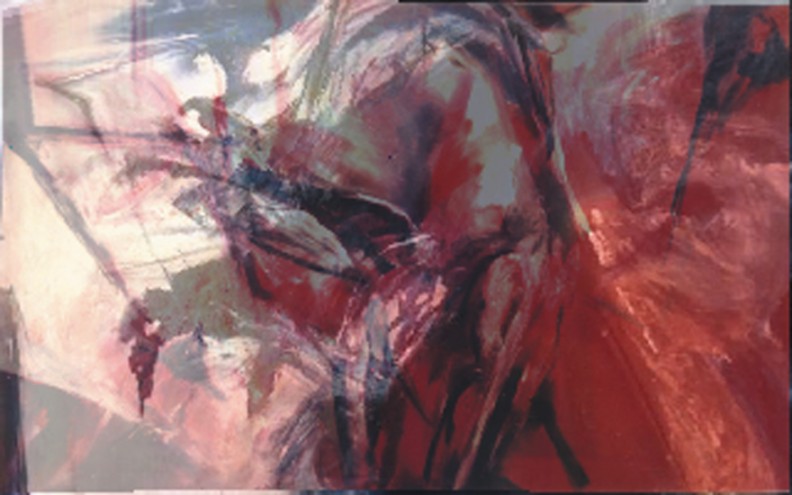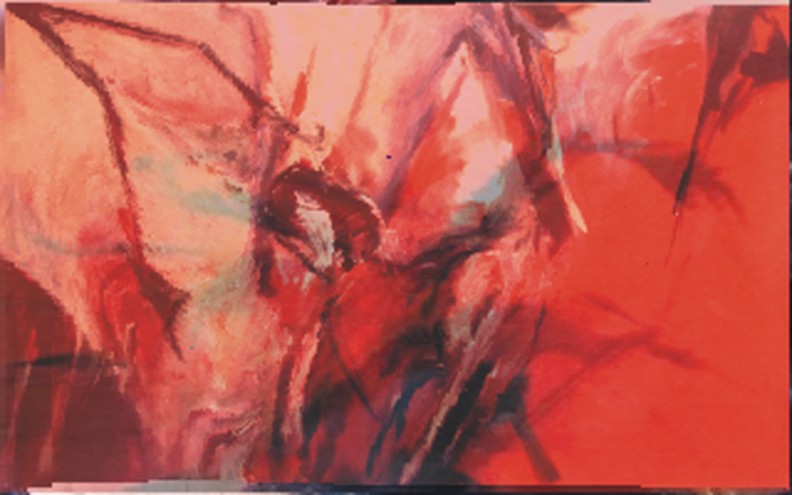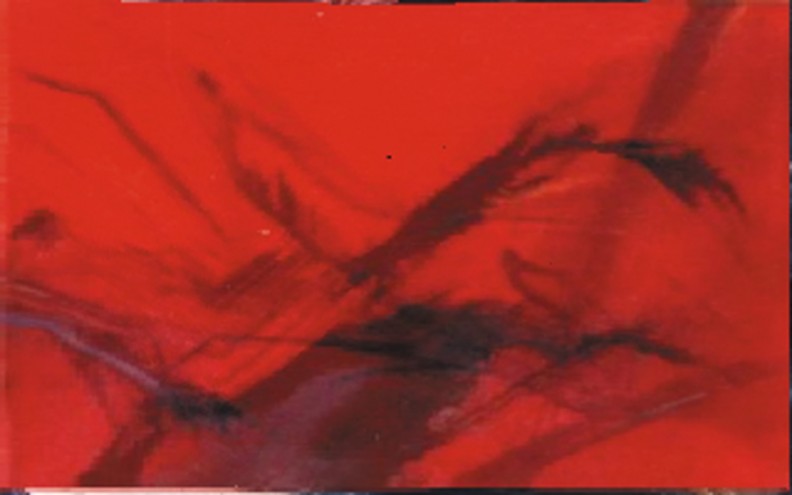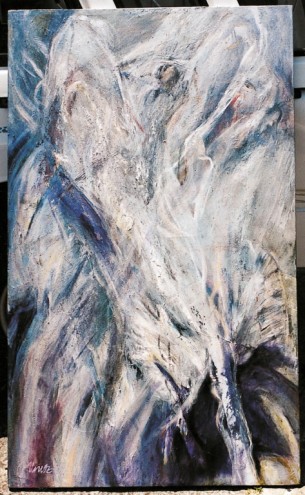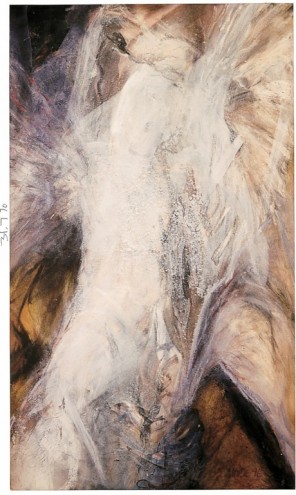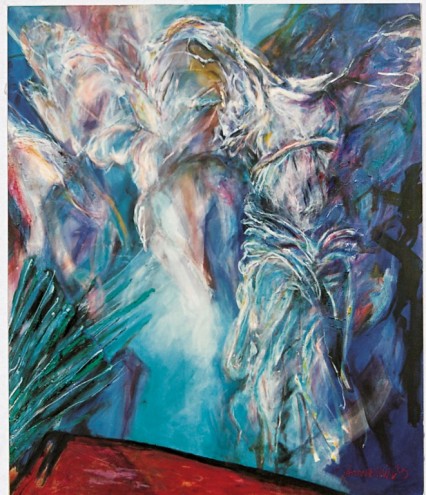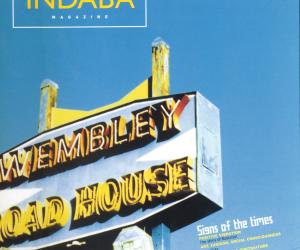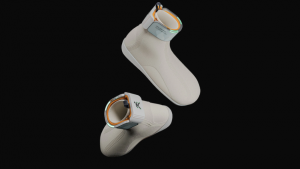First Published in
Jeannette Unite is a Cape Town based artist and exhibits her work both locally and internationally. Her work is in private and corporate collections on four continents. Jeannette believes in sharing her experiences through art education and has taught in a variety of educational settings. She is currently involved with a community based project in Nyanga, Cape Town where she teaches art to the teachers of Vukani Primary School.
Your expression in these works has been described as being very personal.
The background to these particular investigations was a violent childhood - beaten until we bled, locked up, sexually abused. Also, I suffered a violent assault 10 years ago in which I was stabbed and bound up. This partly explains why I am interested in things like 'wounded landscapes' on the diamond mines. The original excavations / wounds were inflicted between 1961 and 65. I was born in '64 so they are the same age as I am. I find that personally significant.
I am not embarrassed and I am not shy about it, but in a sense I don't want to be "identified" by that concept because I believe I am about positive energy. There was a resent exhibition where they had this whole thing on child abuse… there was pubic hair on rocking chairs, a pair of underpants with "use me, use me" written all over it and other overtly sexual imagery. I was like "I have a PHD in sexual abuse. I had it from about the time I was nine years old. This is really not what it's about". If you were going to present something from a child's perspective, you'd have to do it like three meters high, overwhelming. Abuse presents hugely to a child.
Anyway, yes I have actually located and healed a lot of my own stuff in the working process but I don't particularly like the notion of one's work being just a form of art therapy. It actually transcends that. My history of abuse is not what I am about.
In a way, what I feel more proud of is the fact that the largest law firm in the world bought my work "Thresholds" and put it up in their meeting rooms, their foyers and in their reception areas. A South African artist in Brussels - the very centre of Eurocracy!
Now that's something I like to talk about. The miracle is actually coming through a hell of a lot of really difficult stuff and actually transcending it. My story is possibly an echo of what we've been through collectively in this country - difficult but the positive is far greater than the negative.
And what is positive about South Africa in your opinion?
Somebody said to me once that she thought of Europe as a sort of stale old woman, with a fixed routine where things are under control. But Africa is like a teenager, just testing its boundaries and with time to get it right. This is a very dynamic place to be right now.
Coming from different cultures, there are bound to be gaps and spaces between what your expression is and other people's expressions of reality or life. How have you found the experience of teaching art to teachers in the township?
I am very interested in education and I think it's important to pass stuff on, to share creative energy and share the kind of facilities, knowledge and experience that one has. We were a bit unsure of each other at first. I invited them home for lunch one day when I first started working with them to try and get close to them. I felt a bit embarrassed about living in this great big house I was renting at the time. Part of it is probably about being white in this country and being brought up in privilege, having access to good schools, materials, equipment and so on. But they were comfortable with it. There was a pool table and we had a great time getting to know each other.
On the flip side, I enjoy going to the bus / taxi terminus where you can visit the market and there is stuff happening all the time. 15 minutes away from the CBD, you're stopping for goats to cross the road, airplanes overhead darken your vision because they're landing so close by - it's bizarre, just totally different worlds right here.


